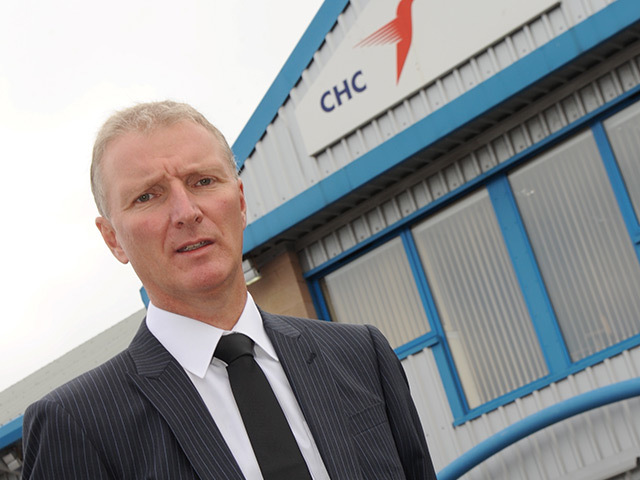
The boss responsible for safety at CHC – the firm at the centre of the latest North Sea helicopter crash – says its Super Pumas will go back to work.
Duncan Trapp, vice-president for safety and quality at Canada-based CHC, told the Press and Journal there was no reason to permanently ground the aircraft.
He said they would go back on oil and gas duty as soon as they were officially ruled safe.
Mr Trapp said yesterday CHC would take “appropriate action” if authorities deemed the helicopters unsafe as a result of investigations launched after an AS323 L2 version crashed into the North Sea on Friday, killing four people.
The chopper, which was carrying two crew and 16 passengers, was on its way back to Shetland’s Sumburgh Airport from the Borgsten Dolphin drilling rig.
A total of 15 people were rescued and flown to safety but one of them later died. The bodies of two of the people killed were found in the water and the remains of the other, Elgin woman Sarah Darnley, were recovered from inside the sunken helicopter.
Mr Trapp said it was too early to say what had caused the tragedy and accident investigators, along with the police, were speaking to the survivors to try to establish what went wrong.
“We are looking at all the options,” he said.
If found, the CVFDR – or “black box” – will be taken to Air Accidents Investigation Branch headquarters at Farnborough for analysis.
Records from the European Aviation Safety Agency show a series of problems have been flagged up to operators about the AS323 L2 in recent years.
After the latest in a spate of incidents involving Super Pumas in the North Sea, an online campaign calling for the entire fleet to be permanently grounded has attracted more than 30,000 supporters.
Mr Trapp said CHC sympathised with the concerns but insisted the global Super Puma “family” had a strong safety record.
The crashed helicopter went through all the normal maintenance and safety checks, he said, adding there were no signs of any problems.
He also said there was no link between the tragedy and an incident involving another AS323 L2 just days before it, when an engine cover latch sensor failed to work properly, leading to an alert light flashing in the cockpit. That aircraft was on its way back to Sumburgh from the Byford Dolphin drilling rig and it had to make an unscheduled stop on the Cormorant Alpha platform for checks before resuming its journey.
“We will build trust back up to where it needs to be,” he said.
“The aircraft will be returned to service when everybody is confident that it is safe to do so.
“All of our customers will be sympathetic to anybody with concerns about flying in them. If they don’t want to fly, they won’t be forced to.”
CHC has 14 aircraft grounded in Aberdeen, along with 21 worldwide, and the company has brought in a Sikorsky S-92 helicopter from the Netherlands to help fill the gap.
Recommended for you
